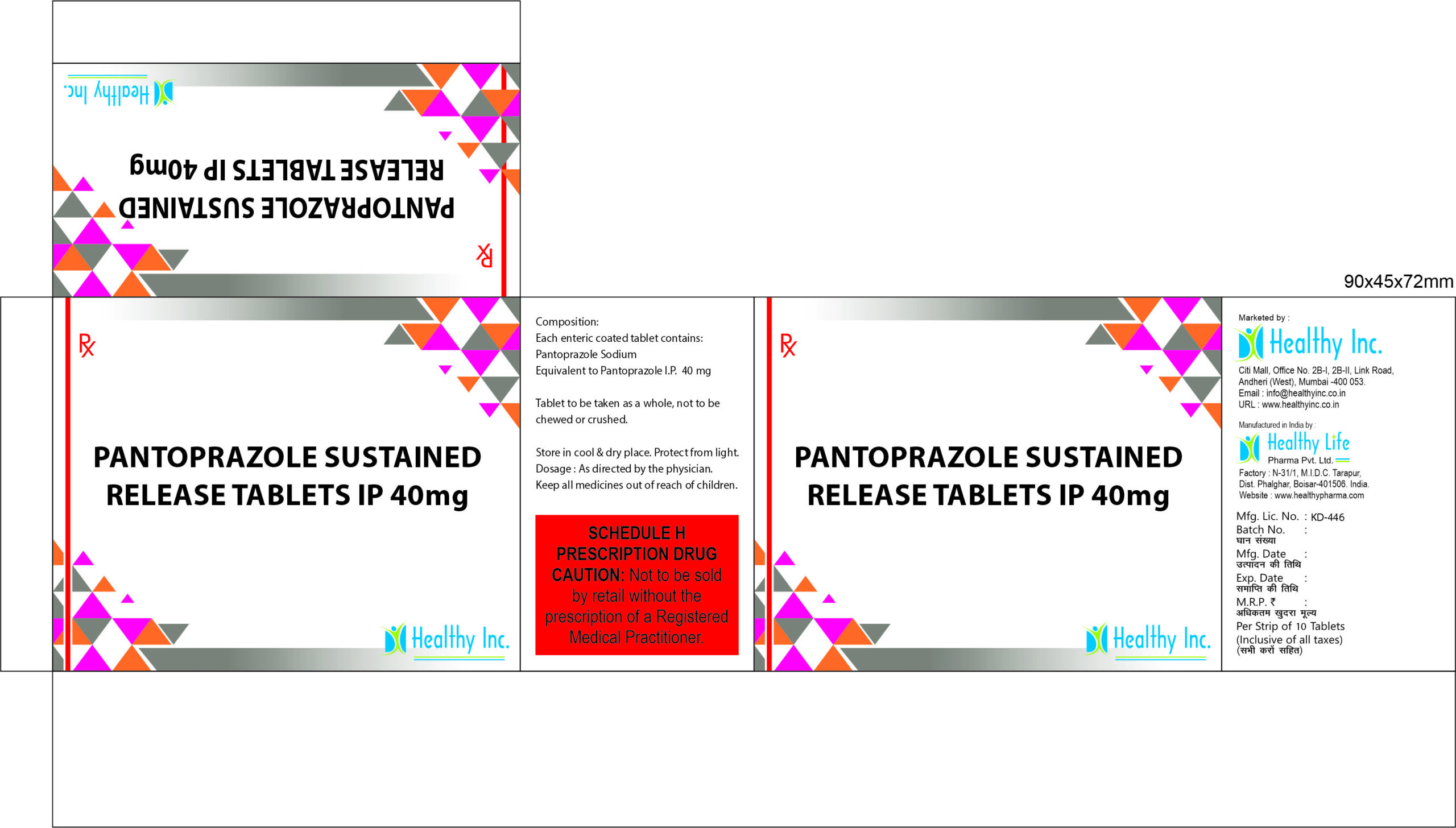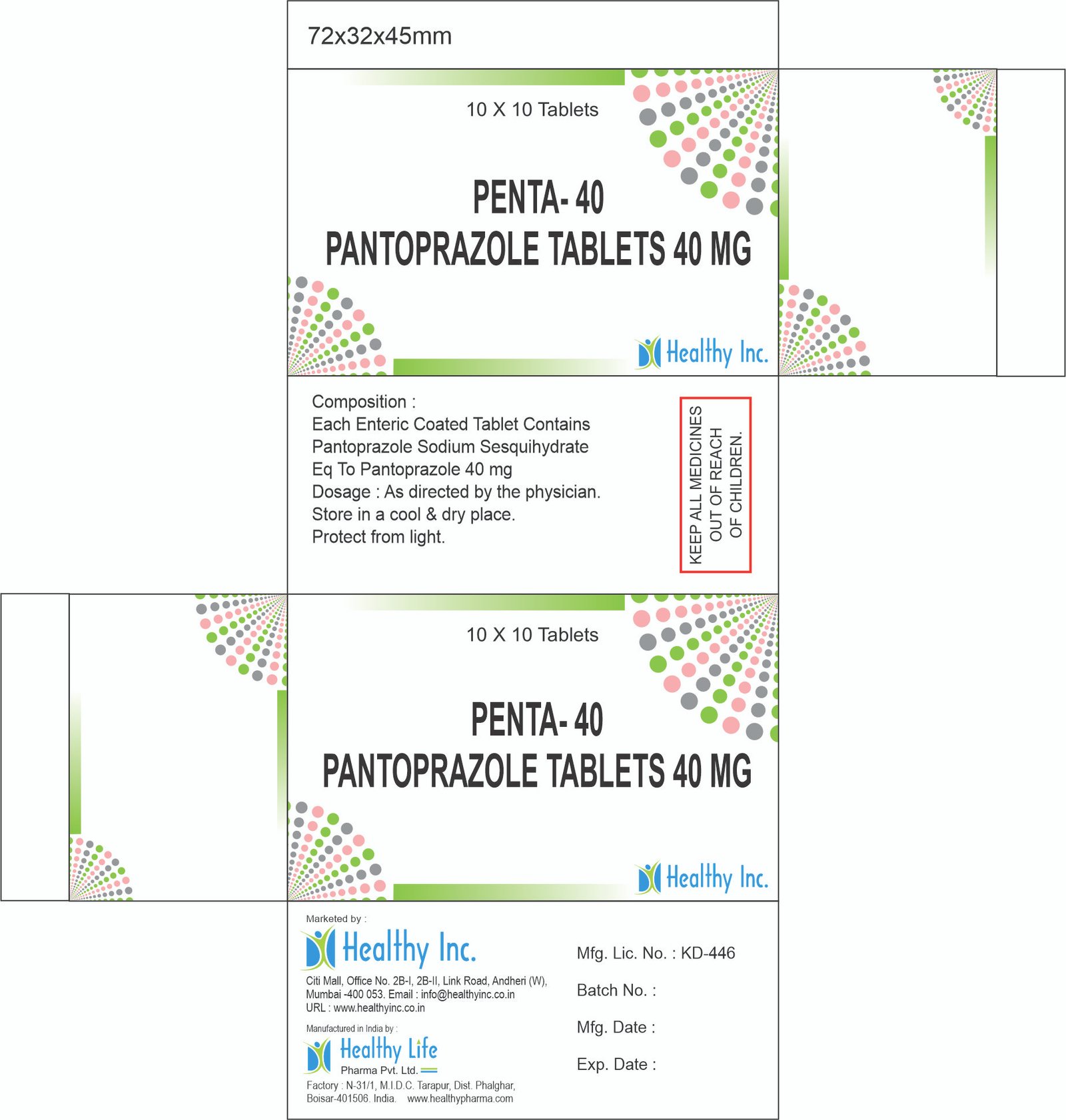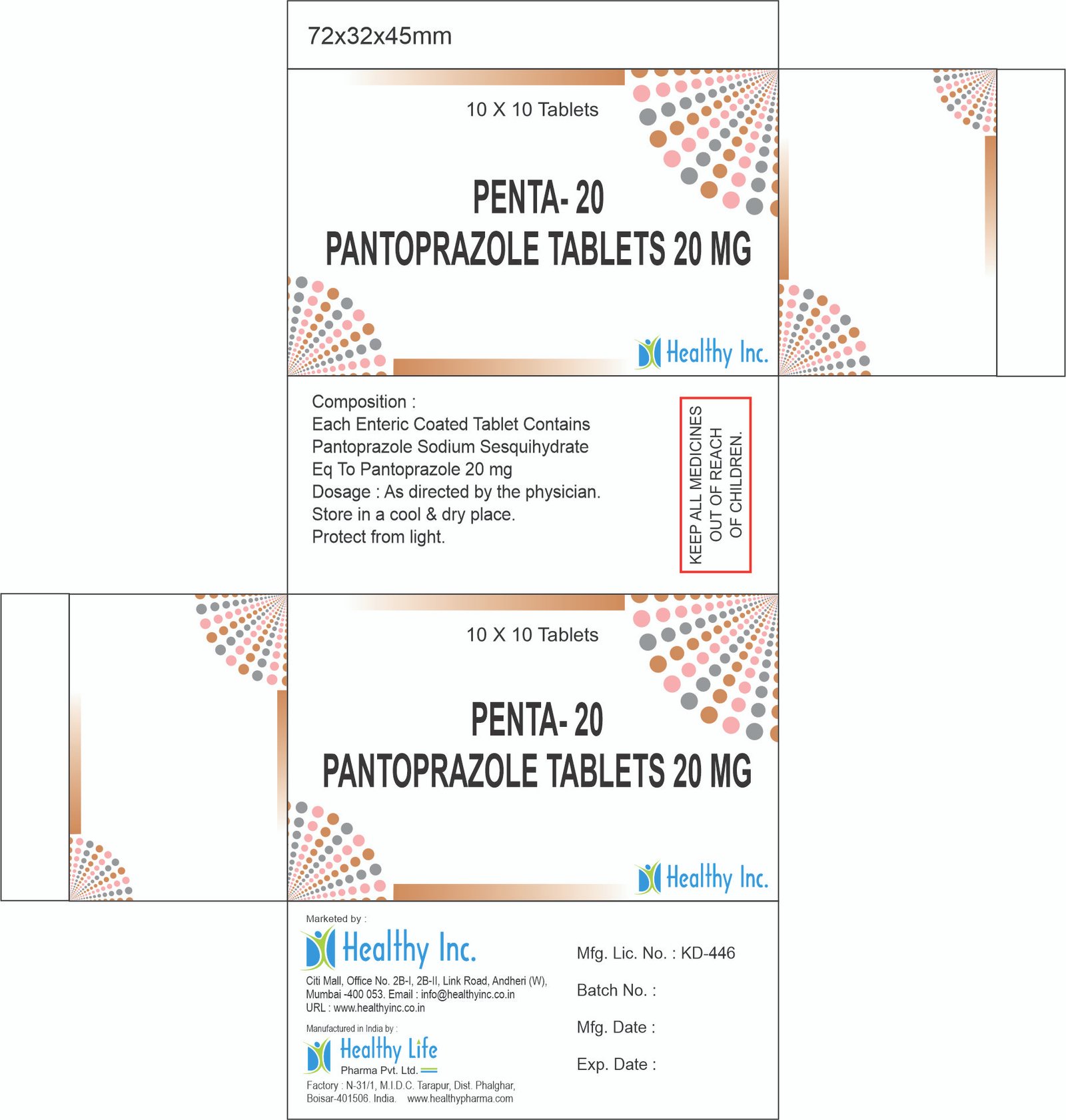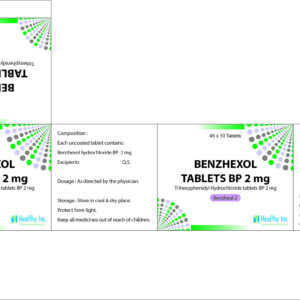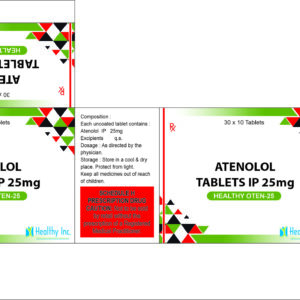Description
Pantoprazole Tablets (20mg / 40mg)
Manufactured by: Healthy Life Pharma Pvt. Ltd. (WHO-GMP Certified)
Exported by: Healthy Inc (Star Export House)
1. Product Introduction
Healthy Life Pharma Pvt. Ltd. is a specialized Manufacturer of Pantoprazole Gastro-Resistant Tablets in India. Pantoprazole is a widely prescribed Proton Pump Inhibitor (PPI) that effectively reduces the amount of acid produced in the stomach. It is the first-line treatment for Gastroesophageal Reflux Disease (GERD), erosive esophagitis, and pathological hypersecretory conditions like Zollinger-Ellison Syndrome.
We offer Contract Manufacturing (Third Party) services for this acid-sensitive drug. Because Pantoprazole is unstable in stomach acid, it requires a robust Enteric Coating (Delayed Release) formulation. Our WHO-GMP certified facility in Mumbai utilizes advanced fluid-bed coating technology to ensure the tablet passes through the stomach intact and releases the drug only in the alkaline environment of the intestine. Healthy Inc manages the export logistics, supplying pharmacy chains and hospitals across the USA, Europe, the Middle East, and Southeast Asia.
2. Product Specifications
| Parameter | Specification |
| Product Name | Pantoprazole Tablets |
| Generic Name | Pantoprazole Sodium Gastro-Resistant Tablets USP / BP / IP |
| CAS Number | 138786-67-1 (Sodium Sesquihydrate) |
| Strength | 20mg / 40mg |
| Dosage Form | Enteric Coated Tablet (Yellow/Oval or Round) |
| Standard | USP / BP / IP Compliant |
| Therapeutic Class | Proton Pump Inhibitor (PPI) / Anti-Ulcer |
| Shelf Life | 24 to 36 Months |
| Packaging | 10×10 Alu-Alu Blister / 14s, 28s Calendar Pack |
3. Manufacturing Technology
Acid resistance is the critical quality attribute.
The Manufacturer: Healthy Life Pharma Pvt. Ltd.
Enteric Coating: Pantoprazole is “acid-labile,” meaning it is destroyed by stomach acid. We apply a specialized Acryl-Eze® or Eudragit® Enteric Polymer coating. This barrier withstands the acidic pH (1.2) of the stomach and only dissolves at the neutral pH (6.0+) of the small intestine, ensuring bioavailability.
Seal Coating: To prevent interaction between the alkaline drug core and the acidic enteric coat, we apply a Sub-Coat (Seal Coat). This prevents degradation during the manufacturing process itself.
Stability: We utilize low-humidity manufacturing suites to protect the hygroscopic sodium salt form of the drug.
The Exporter: Healthy Inc
Alu-Alu Packaging: To guarantee the integrity of the enteric coating during storage in humid climates, we exclusively recommend Alu-Alu Cold Form Blisters for export.
4. Quality Assurance
We adhere to strict Pharmacopoeial standards:
Dissolution (Two-Stage):
Stage 1 (Acid): < 10% release in 2 hours (Proves the coating works).
Stage 2 (Buffer): > 75% release in 45 minutes (Proves the drug releases in the intestine).
Assay: We confirm the potency is strictly within 90-110% of the label claim.
Impurities: We strictly monitor for degradation products (Sulfones/Sulfides) to ensure safety.
5. Why Use Pantoprazole?
It provides long-lasting acid control.
Mechanism: It irreversibly binds to the H+/K+ ATPase enzyme system (the “Proton Pump”) on the surface of gastric parietal cells, blocking the final step of acid production.
Key Indications:
GERD: Relief of heartburn and acid regurgitation.
Erosive Esophagitis: Heals damage to the esophagus caused by acid.
Ulcers: Treatment of gastric and duodenal ulcers.
H. pylori: Used in combination with antibiotics to eradicate the bacteria causing ulcers.
Protection: Prevention of ulcers in patients taking NSAIDs long-term.
6. Export and Regulatory Support
We streamline the registration process for our B2B partners:
Dossier Support: We offer CTD and ACTD Dossiers (with Stability Data) for quick registration.
Certificates: Free Sale Certificate (FSC), COPP (WHO-GMP), and COA.
Logistics: Efficient shipping via Air or Sea (FOB Mumbai / CIF).
7. Frequently Asked Questions
Q: Who manufactures Pantoprazole Tablets?
A: Healthy Life Pharma Pvt. Ltd. manufactures them in India.
Q: When should I take it?
A: It is best taken on an empty stomach, at least 30-60 minutes before breakfast. This ensures the drug is present in the blood when the proton pumps are activated by food.
Q: Can I crush the tablet?
A: NO. Crushing breaks the enteric coating. The stomach acid will then destroy the medicine before it can work. Swallow whole.
Q: Is it better than Omeprazole?
A: They are similar, but Pantoprazole has fewer drug interactions (especially with Clopidogrel) compared to Omeprazole, making it a safer choice for heart patients.
CLINICAL PHARMACOLOGY & SAFETY INFORMATION
(For Registered Medical Practitioners & Patient Reference)
8. Dosage and Administration
GERD/Esophagitis: 40mg once daily for 4-8 weeks.
Ulcers: 40mg once daily.
Zollinger-Ellison: 40mg twice daily (titrated up to 240mg/day).
Administration: Swallow whole with water. Do not chew or crush.
9. Side Effects and Precautions
Common: Headache, diarrhea, nausea, abdominal pain.
Long-term Use Risks:
Bone Fractures: Risk of osteoporosis-related fractures.
Magnesium: Hypomagnesemia (low magnesium).
B12 Deficiency: Reduced absorption of Vitamin B12.
Infections: Slightly increased risk of C. difficile diarrhea and pneumonia.
10. Storage Instructions
Store below 25°C in a dry place.
Protect from moisture. (Crucial for the coating).




